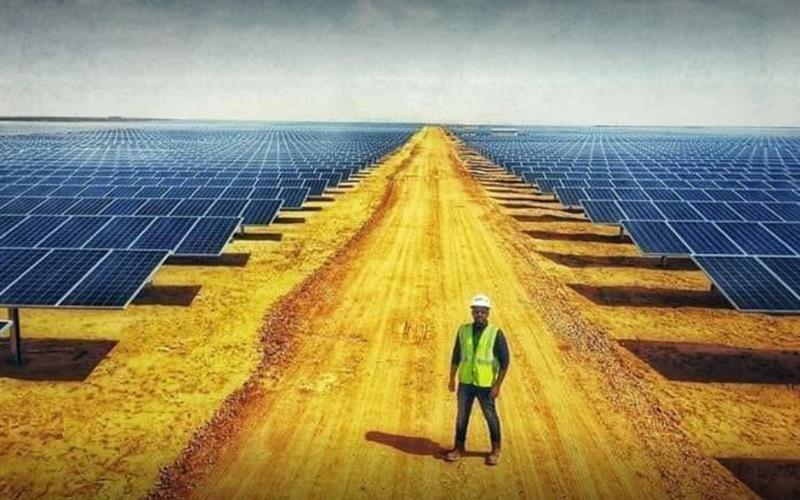
German and Egyptian businesses are working in the fields of solar and wind power
Egypt has been stepping up its transition to clean energy and a greener economy to help meet the threats of climate change and achieve sustainable development while at the same time preparing to host the UN Conference of the Parties on Climate Change (COP27) in Sharm El-Sheikh in November.
According to participants at the German-Egyptian Sustainable Energy Forum organised last week by the German-Arab Chamber of Industry and Commerce (GACIC), Egypt has been moving forward with ambitious goals for a green transition by issuing its first green bonds worth $750 million and increasing the contribution of renewable energy sources while working closely with international partners like Germany in preparations for COP27.
The government has emphasised its keenness to reach a renewable energy target of 35 per cent of total electricity production by 2025 and 42 per cent by 2035. Germany has long been a main partner in the energy field, helping to build power stations in Egypt as well as solar and wind farms.
Jan Noether, CEO of GACIC, told Al-Ahram Weekly that Egyptian-German cooperation in the sustainable energy field was highly fruitful and mutually beneficial and that the German private sector was delighted to offer technological and strategic solutions to support Egypt’s industrial and individual needs in this field.
The German energy industry is an active player in Egypt, part of more than 250 German companies operating in the country. Egypt offers ideal solutions for it not only due to its regional proximity to Europe, but also because of its experienced and diversified industry.
Incorporated more than 70 years ago, GACIC offers solutions, networks, and partnerships in industry, forming networks to facilitate economic and industrial know-how and fostering cooperation and industrial development.
“The latest long-term initiative with Egypt was formed around the important topic of sustainability,” Noether said.
The GACIC facilitates investment in the energy sector and sustainability, as well as the automotive supply industry, chemicals, pharmaceuticals, the environment, logistics, information technology, and small and medium-sized enterprises.
German and Egyptian businesses are working in the fields of solar and wind power, as well as green hydrogen solutions, he said, adding that sustainability was not restricted to green energy sources.
German companies are interested in Egypt for a variety of reasons, including the ongoing digitisation efforts of the government and the trade agreements Germany has with the Middle East and North Africa (MENA) region. There is also the further implementation of the Africa Continental Free Trade Agreement, which ensures tax-free access for products exchanged between Egypt and the African countries.
The German government is fully behind the COP27 meeting, and many German industrial players have asked to contribute to this global initiative that brings together representatives from all over the world to discuss lowering emissions and increasing climate-change adaptation and mitigation efforts.
The GACIC forecasts the implementation of sustainability requirements applicable to national and international supply chains following the German and European model, Noether said, adding that if the German and Egyptian private sectors could focus more on implementing solutions to contribute to a greener world, both industries would be winners in the medium term.
According to Egypt’s Ministry of Planning, about 30 per cent of investment projects for fiscal year 2021-22 are planned as green projects, up from 15 per cent in the 2020-2021 fiscal year.
Egypt’s portfolio of green projects eligible for financing amounted to about $2 billion by the end of 2020, of which 16 per cent are in the field of renewable energy, 19 per cent in clean transportation, 26 per cent in water and sanitation, and 39 per cent in pollution reduction.
Egypt’s 2035 Energy Strategy aims to generate 61 Gigawatts (GW) of renewable energy, 31 of which are from solar energy. Concentrated solar power will constitute 12 GW, and the remaining 18 GW will come from wind energy.
One GW equals 1,000 Megawatts (MW) of power. The energy sector represents about 13.1 per cent of Egypt’s GDP, according to government data.
Short link: